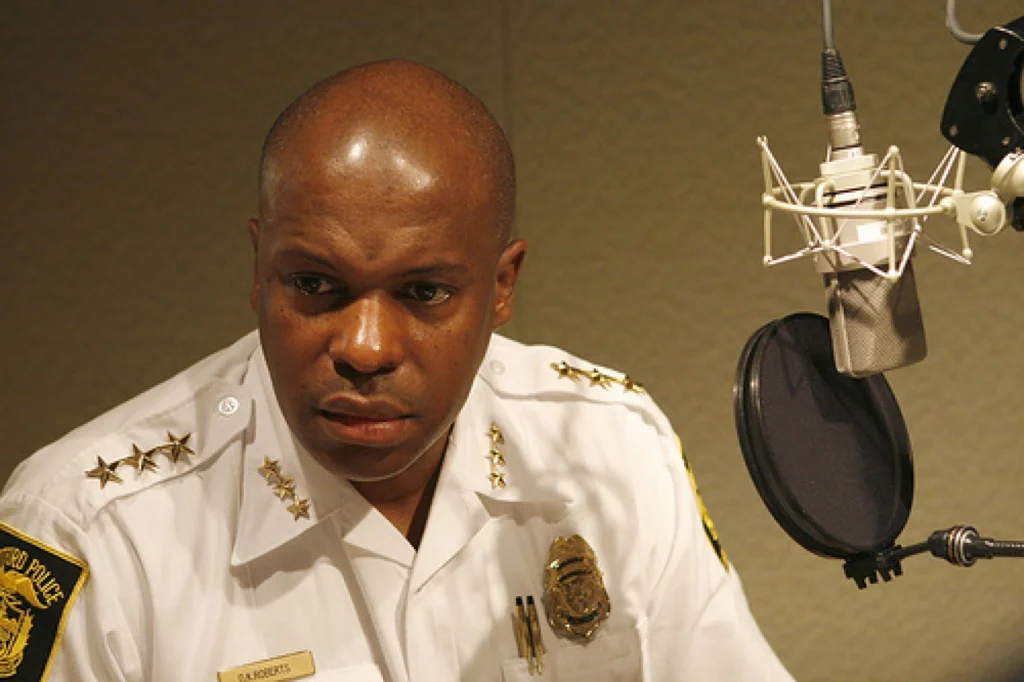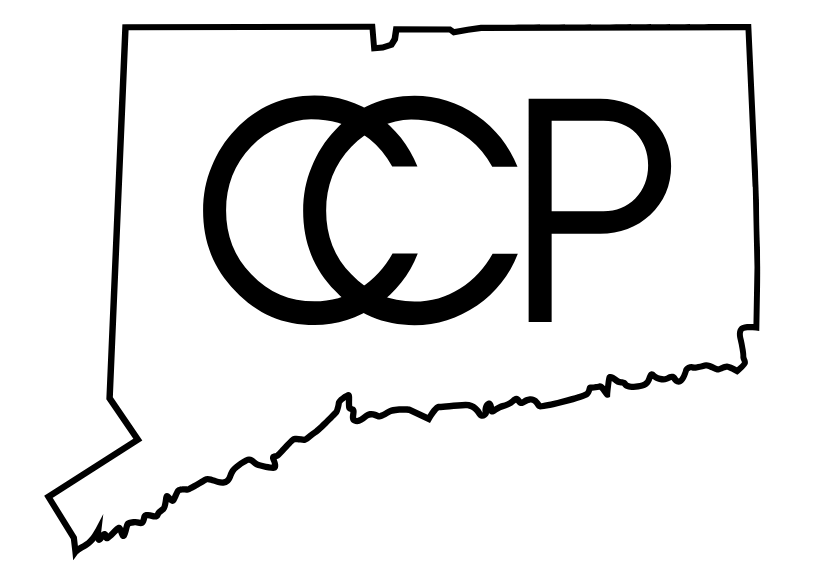1997

Sergeant Roberts, a Black HPD Officer who would later become chief, files a complaint with the Connecticut Commission on Human Rights alleging workplace discrimination within the department. Roberts names Deputy Chief Casati as a direct proponent of “racial, ethnic and gender insensitivity.”52 In his complaint, Roberts alleges that “Casati made bigoted, sexist and racial remarks either at staff meetings, out on the floor, in his office or other areas while performing his duties at Hartford Police Headquarters.”53 Roberts explains that he was transferred between units and passed up for promotion opportunities, which he believed was directly connected to Casati’s hateful rhetoric. This complaint incites widespread criticism of Casati, as well as Police Chief Joseph Croughwell for his lenient response; Croughwell merely demoted Casati from deputy chief to captain while he awaited a disciplinary hearing.
Casati claims his comments were rarely directed at individuals, and those in support of him believe that his discriminatory remarks are a normal part of police language. Blue humor, as it would be termed years later, is the use of derogatory remarks and language masked as harmless “jokes” or casual conversation amongst officers. The normalization of such language coevolves alongside police cultures that continually violate the constitutional rights of Hartford’s Black and Latino residents, a cycle shrouded in the reduction of speech outside the realm of tangible action. Sociologist Raul Perez explores the power of offensive language in his article “From Insult to Estrangement and Injury: The Violence of Racist Police Jokes,” emphasizing the impact of degrading insults on a person’s livelihood. This harmful rhetoric of “racist blue humor fosters the social acceptability of prejudice and discrimination among officers, normalizing a culture of dehumanization that legitimizes structural and direct violence.”54 When Maria Cintron and the other plaintiffs brought their lawsuit against the HPD and city administration in 1969, abusive language is underscored explicitly as one avenue through which the police department carried out its regime of violence; “Habitually referring to members of plaintiffs class with humiliating, derogatory, and obscene racial epithets and in numerous other ways refusing to accord members of the plaintiffs’ class respect due to citizens by officers of the law.”55 Humiliation, spelled out as a crucial element of violence in the suit, is a tactic of control with the intention of subjugating people under state power. In the case of Cintron, it is a tool readily utilized by the HPD that was exposed.
When the case was settled four years later in Roberts’ favor, the resulting document responded to this claim by reaffirming a provision of Cintron first written in 1969 titled “Trigger Words,” which forbade officers from using racial slurs. On one level, this inclusion was an acknowledgment of language as a form of racial violence, an admission that State Arbitrator Albert Murphy failed to perform when he condoned Casati’s language in 2000. However, the text of “Trigger Words” limits its own scope by implicitly condoning the use of slurs in private, a concession to officer culture which is aligned with Murphy’s. Consider its simultaneous recognition and disavowal of the harm caused by speech:
Officers shall refrain from harsh, violent, coarse, profane, sarcastic, or insolent language. It is recognized that words with a derogatory connotation may have been used on certain occasions in friendly conversations without any intention of being discourteous or without any thought being given to the adverse effects these words might have on others who might hear the conversation. To avoid creating unpleasant situations, or when speaking to a group, shall avoid the use of derogatory terms or those terms which might be interpreted as derogatory, such as boy, hey boy, spic, wop, kike, chink, burrhead, dago, nigger, polack, bohunk, limey, frog, or kraut.56 (Emphasis added)
As is evident across the text and timeline of Cintron, there is no claim against police power that is not still churning to this day. Casati’s scandal reflects a larger debate concerning the weight that words wield, which is especially pertinent in fields of biopower such as law enforcement. Far from the old adage about sticks and stones, language often means the difference between life and death in interactions between police and Black and Latino citizens. It also mediates the ordinary applications of power scores of Black Americans are subjected to each day, constituting a landscape of vulnerability. And yet, as indicated by the text above—itself part of a supposedly progressive judicial reform effort—and its reiteration in more recent rhetorics such as that of Arbitrator Murphy, the structural role of language is easily denied. A phantom world is constructed in these accounts, one in which words are abruptly disconnected from their histories. Relations of power are obscured; in contrast to the certainty of a blow from a bully stick, the force held by “Trigger Words” is shrouded between “mights.”
Notes
52. Article IV: Supervisory Responsibilities, Decision by Arbitrator Albert G. Murphy, May 5, 2000. Collection of Attorney Sydney Schulman.
53. Ibid.
54. Raúl Pérez and Geoff Ward, “From Insult to Estrangement and Injury: The Violence of Racist Police Jokes,” Sage Journals, Volume 83 Issue 13, April 12, 2019, https://doi.org/10.1177/000276421984261.
55. Complaint at 8, Cintron, et al v. Vaughn, et al, 3:69-cv-13578-KAD (D. Conn. December 9, 1969).
56. Settlement Stipulation at 5, Cintron, et al v. Vaughn, et al, 3:69-cv-13578-KAD (D. Conn. June 21, 1973).
